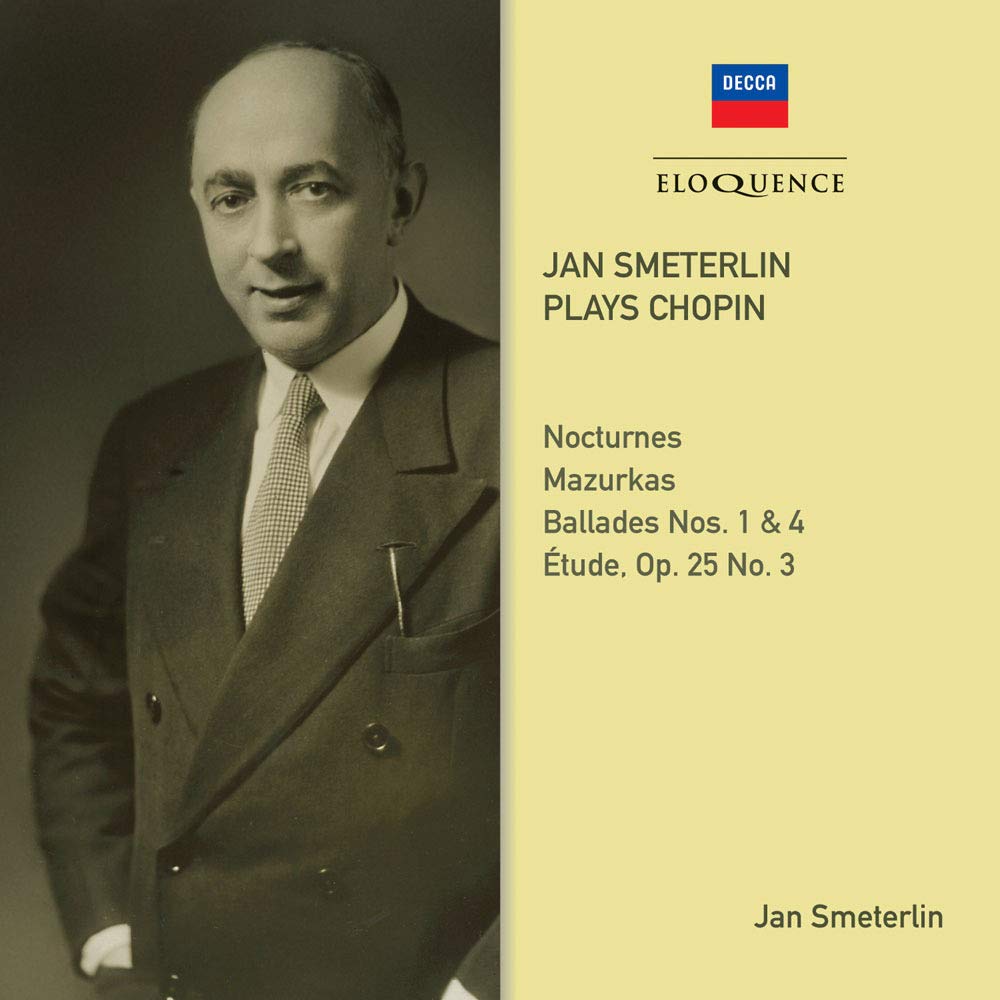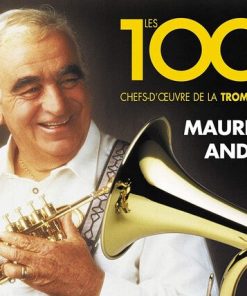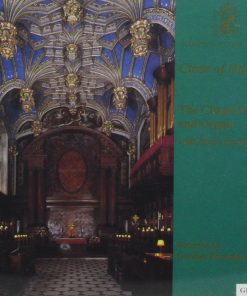JAN SMETERLIN PLAYS CHOPIN (2 CDS) DECCA
$ 0,00

Jan Smeterlin was a born Chopin interpreter on home soil. Presented here is a collection that includes rare and previously unissued recordings.
Writing to Gramophone in 1965, a Royal Navy Commander stationed in India made an impassioned plea: ‘I have heard Rubinstein, Ashkenase, even Paderewski, playing the Chopin Mazurkas … None has approached the sublimity of Smeterlin’s playing of them. Please, some recording company, capture his magical performances while they are still available.’
The record companies did not share such convictions, and Smeterlin died two years later. However, this new collection has unearthed the C sharp minor Mazurka Op. 63 No. 3 from a previously unpublished, presumed lost session undertaken by Smeterlin at Decca’s West Hampstead Studios in June 1946, along with the F major Etude Op.25 No.3. They confirm the Commander’s high opinion of Smeterlin’s natural authority, which had established his reputation among the most distinguished Chopin pianists of his generation.
Furthermore, the collection presents a BBC studio recital given by Smeterlin in April 1949 , including six mazurkas and the First and Fourth Ballades. The recital demonstrates Smeterlin’s gifts as a master story teller, with a light touch and flexible rhythm typical of the Polish-French school of pianism which ultimately derived from the composer himself, free in the melody and yet anchored by a supple command of the left hand. No wonder, we might feel listening to these precious and newly remastered recordings, that Szymanowski dedicated a volume of his own mazurkas to Smeterlin.
Born in 1892, Smeterlin had to overcome the determination of his parents that he pursue a legal career. Lessons with the legendary pedagogue Leopold Godowsky led to international success in the 1920s, and he settled in London just before the outbreak of the Second World War. In 1954 the Philips label recorded the complete Nocturnes, which briefly appeared on the label’s ‘Early Years’ CD series, but have long been unavailable. His approach is uniquely free and instinctive, imbued with understated poetry, and worthy of the Navy Commander’s comparison with Rubinstein.

‘His playing was spontaneous and refined; sometimes he was heard to better advantage in an unfamiliar mazurka than in one of the grander works.’ Musical Times, March 1967
‘Impulsive, personal and always interesting.’ Gramophone, Awards issue 2004
‘A wealth of tonal colour. I can forgive [Smeterlin] his minor indiscretions for the wonderful spontaneity, poetic insights and intense lyricism he brings to these works. He projects long lines, with instinctive phrasing.’ MusicWeb International, May 2015 (Nocturnes)

CD 1
1–14 Nocturnes Nos. 1–14
CD 2
1–6 Nocturnes Nos. 15–20
BBC Recital, London, 17 April 1949*
7 Mazurka in B minor, Op. 33 No. 4
8 Mazurka in C minor, Op. 56 No. 3
9 Ballade No. 4 in F minor, Op. 52
10 Mazurka in A flat major, Op. 59 No. 2
11 Mazurka in F sharp minor, Op. 59 No. 3
12 Mazurka in G major, Op. 67 No. 1
13 Mazurka in B flat minor, Op. 24 No. 4
14 Ballade No. 1 in G minor, Op. 23
Unpublished Decca Recordings*
15 Etude in F major, Op. 25 No. 3
16 Mazurka in C sharp minor, Op. 63 No. 3
Jan Smeterlin, piano
Fast Shipping and Professional Packing
Due to our longstanding partnership with UPS FedEx DHL and other leading international carriers, we are able to provide a range of shipping options. Our warehouse staff are highly trained to pack your goods exactly according to the specifications that we supply. Your goods will undergo a thorough examination and will be safely packaged prior to being sent out. Everyday we deliver hundreds of packages to our customers from all over the world. This is an indication of our dedication to being the largest online retailer worldwide. Warehouses and distribution centers can be located in Europe as well as the USA.
Orders with more than 1 item are assigned processing periods for each item.
Before shipment, all ordered products will be thoroughly inspected. Today, most orders will be shipped within 48 hours. The estimated delivery time is between 3-7 days.
Returns
The stock is constantly changing. It's not entirely managed by us since we are involved with multiple parties such as the factory and our storage. The actual stock can fluctuate at any time. Please understand it may happen that your order will be out of stock when the order is placed.
Our policy is valid for 30 days. If you haven't received your product within 30 days, we're not able to issue either a return or exchange.
You are able to return a product if it is unused and in the same condition when you received it. It must also still remain in the original packaging.























































